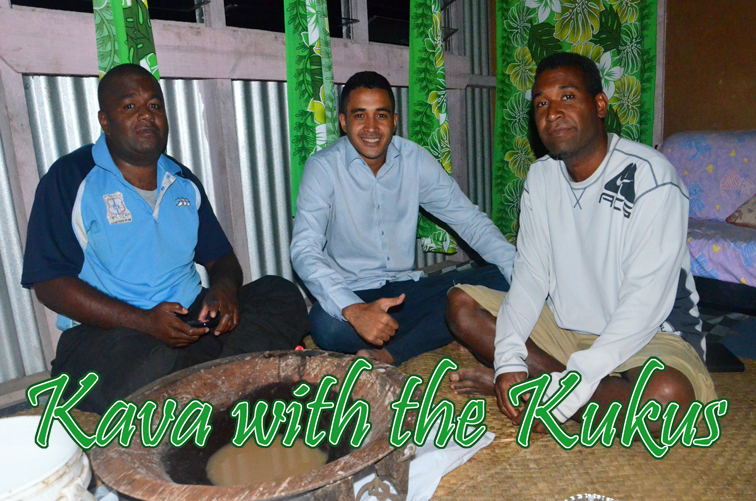I never expected that I’d actually have a kava experience when I read about the drink prior to my visit. Well, be careful what you don’t wish for. I could have had kava until my head turned numb. Yes, that is what I was told happened if you drank it like a Fijian. I limited myself to two glasses of the drink a day and never had more than a numbing sensation in the back of my tongue. I learned that it is nothing for a Fijian to have ten, twenty, fifty and even one hundred rounds in one evening.
The traditions around kava vary from village to village, but there are three main reasons for drinking the mix.
- It’s a very social experience in Fiji.
- It’s a way to acknowledge the presence of a visitor in the community.
- The original purpose was strictly for chiefly ceremonies.
Originally, only four people took part in the drinking of kava. It was only for the chief, his spokesman, the priest and his spokesman. But, times they have a changed, and instead of four people drinking, it’s an open bar. Seriously, fifty drinks over a minimum of four hours of drinking was normal. And, yes, for some people that was normal every night.
Kava is prepared in a special hardwood bowl called a tanoa. It’s carved from one piece of wood. The bowl has four legs and there is a triangle symbol on the front. It’s supposed to work like a compass and point to the person of highest honor in the room, usually the chief. Hopefully, never the visiting American artist in their presence.
The drink is always served in cups made from coconut shells. Now, those shells are naturally brown. But, when used in a kava ceremony, they are always black. How does that happen, you might ask? The cups are buried in the ground for three or four days. Whatever is in the soil turns those coconuts shells black. And, whatever is in the soil that turns coconut shells black does not help me want to drink more than two cups a day. What can possibly do that to wood?
Three people share responsibility for making kava. They sit on three sides of the tanoa. (Forgot what that means? Look back two paragraphs.) The man on the left helps pour water as the man in the middles mixes up the kava. The man on the right supervises the process to make sure that nothing is added to the kava that shouldn’t be there.
When you are about to receive you glass of kava, you clap once. However, that clap needs to be a cupping of your hands. If you clap like a normal American, you’re likely to be told that is applause. Nobody wants applause during the kava ceremony. But, if you clap once by cupping your hands, you demonstrate that you receive the drink with honor. And, after you swallow the swill, you and your friends clap three times. The three claps show both respect and deep appreciation for the drink.
The kava experience is taken very seriously. It has deep roots in Fijian tradition and is meant to honor the ancestral spirits. And, I found out first-hand that you really aren’t supposed to take it lightly. At one point during my kava with the Kukus, one of my friends made an insulting joke. I told the person serving the kava that it might be a good time to throw a cup of kava at the joker.
I was very politely corrected.
Kava is meant to be a welcoming and honoring experience. Throwing kava would be extremely offensive. I know of no food or beverage back home that is so respected. But, for an American, it would be as offensive as throwing Old Glory at someone. For a Christian, it would be as inappropriate as tossing the Bible. You just don’t do that. However, I think that throwing kava might be more serious. I was told it could be grounds for murder. Kava has a history of association with witchcraft. Tossing the kava at someone could be a way to cast a spell. So, I repeat, you just don’t do that. And, you don’t joke about it.
You can, however, drink a whole lot more than two cups of kava in one evening.


 RSS Feed
RSS Feed